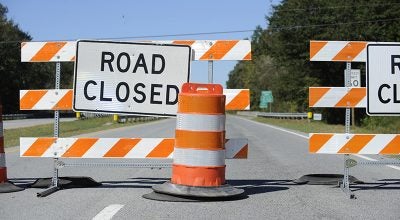Time to get ready for dove opening day
Published 6:43 pm Saturday, July 30, 2011
The weather is too hot to even think about getting ready for the opening day of this year’s mourning dove season but hen you look at the calendar and realize that September 3d is only a few weeks away, one comes to the conclusion that we’d best start breaking out the favorite bird-gun and starting to practice at the nearby sporting clays range. From all reports that I’ve been getting this year’s crop of mourning dove looks good. In spite of the drought the birds seem to have made lots of young and found plenty of food and access to water in our areas.
Hunters lucky enough to have access to a carefully manicured sunflower field are watching the blooms develop and praying that the raccoons and bears don’t destroy the seed crop before the dove have a good chance at it. For many dove hunters that aren’t members of a dove hunting group with access to these managed dove fields it’s time to start looking around for a good place to hunt. I’ve already had a number of phone calls and e-mails asking where the commercial dove fields (where a hunter pays the landowner/farmer for the privilege of hunting there on opening day) can be found. This information can usually be found as an advertisement in the local newspaper or online at such sites as Craigs List.
If you do find such a pay-as-you-go dove field for an opening day hunt it really pays to check out such an operation very carefully. Some of these commercial dove hunts offer free hunting to youthful hunters as long as they’re accompanied by a paying guest. Since the opening day of dove season is such a “special day” to many outdoorsmen, many of these hunts offer an after hunt pig picking to make the day even more special to veteran hunters as well as novice hunters. I’ve often heard dove hunters refer to this opening day’s hunt as being a “sacred holiday.” These commercial dove fields are usually planted in some type of crop that is a proven attractant for dove. It is permitted to mow these crops to place some of the grain on the ground for the ground-feeding dove but it is not legal to “sweeten-up” these food sources by manually placing some extra foods in the field.
The laws on the baiting of wildlife are different according to what species of game the hunter is after and in the case of dove hunting you find the rules for baiting to be very different than baiting for waterfowl. Be sure to read the regulations on baiting carefully and understand the difference in them. If you’re in doubt, contact the NC Wildlife Resources Commission (NCWRC) Enforcement Section or the federal wardens with the U.S. Fish and Wildlife Service (USFWS) and ask them for help in interpreting this law. Probably one of the very best places for a dove hunter to look for a good dove hunting spot for opening day is on the very land that we hunters literally own.
We’ve paid for and maintained lots of public hunting areas all across North Carolina and they’re at our disposal for the price of a proper hunting license. The NCWRC publishes a booklet listing permit hunting opportunities in our state. It’s a well thought out source of hunting information that hunters will find to be one of the most useful tools they can have in their possession.
This booklet and the more detailed booklet showing the actual maps of the public hunting game lands should supply hunters with all the information they’ll need to have access to over two-million acres of good hunting land in our state. The hunting opportunities booklet breaks the information down into just what kind of game a hunter is after and breaks this down even further into the three regions in North Carolina you’re interested in for hunting opportunities. The Coastal Region of public hunting areas show that dove hunting is available on the Croatan, J. Morgan Futch, Roanoke, Suggs Mill Pond and White Oak Game Lands.
Dove hunting is available in the Piedmont Region on the Mountain Island Educational State Forest and Second Creek Game Land. The Mountain Region offers dove hunting on the Johns River Game Land, Mountain Research Station (Waynesville) and the Sandy Mush Game Land. A later section in the hunting opportunities booklet offers the exact regulations for each of the above listed game lands available for dove hunting.
There are deadlines for applying for permits to hunt dove on these lands and certain dates that the land is open for hunting. Apparently the NCWRC has chosen to offer quality rather that quantity hunting on these lands so a limited number of hunters are allowed to hunt at any given time. There is a $5.00 application fee for every hunt applicant. Leaving the booklet listing the permit hunting opportunities and going to the game lands hunting and fishing maps for North Carolina booklet, a hunter can find detailed maps of every public hunting area along with detailed instructions on how to get there.
These two booklets that we outdoorsmen have paid for with our hunting and fishing licenses and the taxes we pay on our equipment are about all that a hunter needs to find quality hunting and fishing in our state. The booklets break the opportunities down by species to be hunted and offer detailed instructions on how to find and apply for these hunts.





